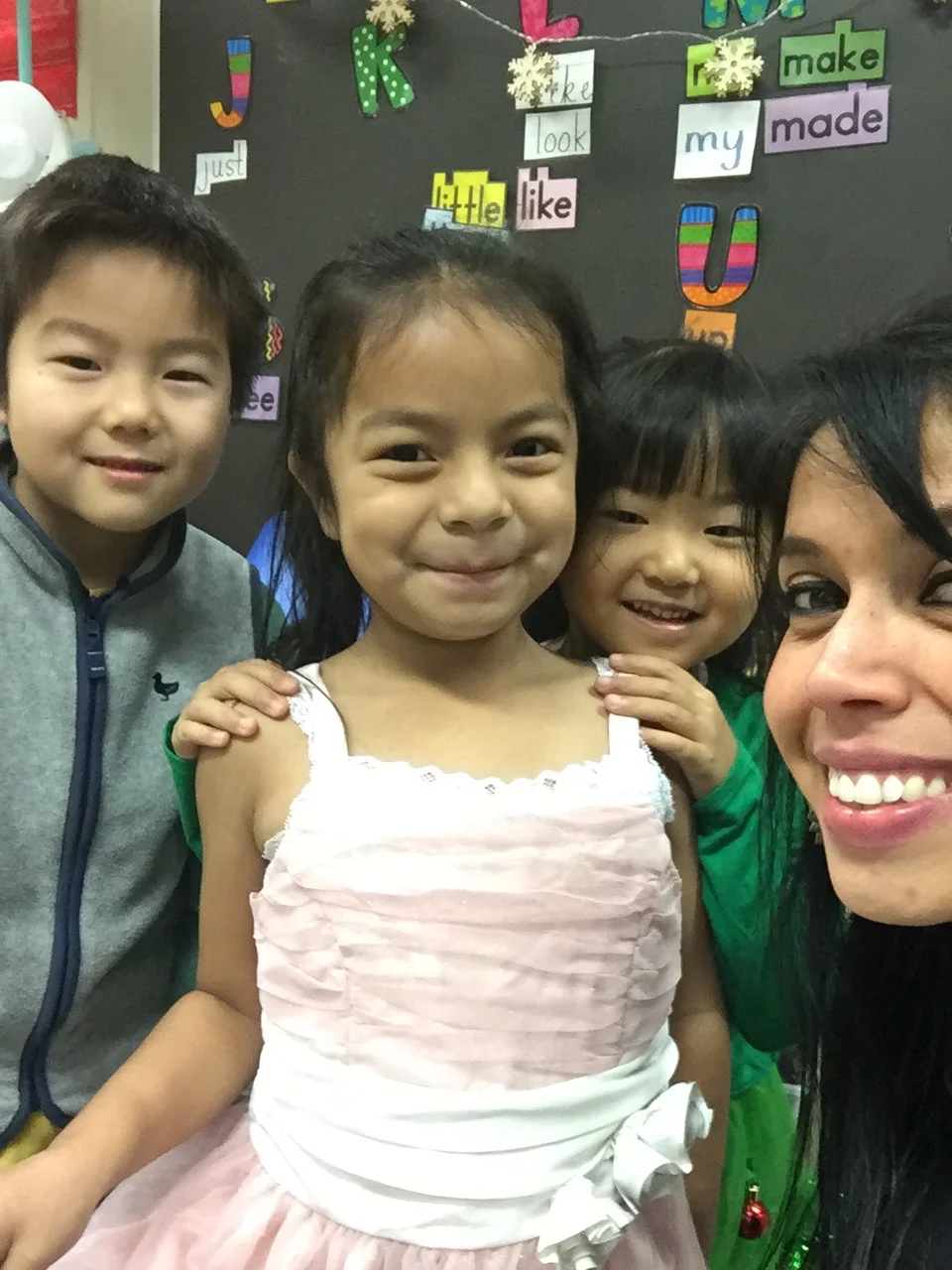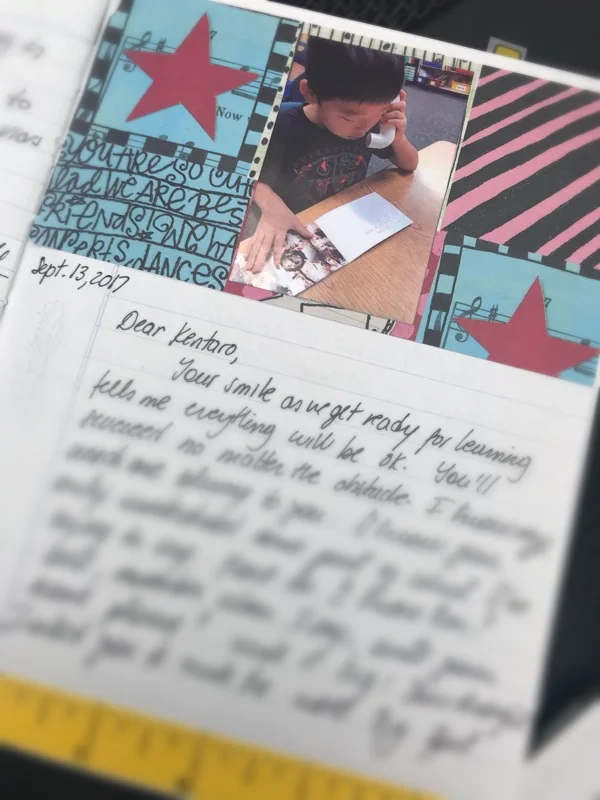Remembering Anthony Bourdain: How his life has influenced my work with Multilingual Learners
How Anthony Bourdain influenced my work as an Educator of Multilingual Learners
By Stella Villalba
My family and I are a family of makers. My parents owned a restaurant for 25 years so I was raised with the aroma of basil and oregano inundating our home. We love to eat. We find joy in eating our food slowly while we have endless conversations on the dinner table. In Spanish, we have a special word: “sobremesa” which means the art of lingering conversations at the table. When we finished our meal, no one moves. There’s no need to take the dishes to the dishwasher right away. We stay at the table and linger. Enjoying the talks that follow. When Anthony Bourdain started traveling overseas showing the rest of the world how people cook, eat and share the dinner table, I immediately felt a connection. I felt like he got it. He talked to the locals. He tried new food without fear or prejudice. He was madly in love with the far off corners of this world. And he would linger at the table longer like the rest of us would. Little did I know how his work would influence my own philosophy as an educator of Multilingual learners. Here are some of Anthony Bourdain’s beliefs and the parallels with teaching.
“If I’m an advocate for anything, it’s to move. As far as you can. As much as you can. Across the ocean. Or simply across the river. Walk in someone else’s shoes or at least eat their food. It’s a plus for everybody.”
Bourdain’s life was all about advocating for a life full of travels, conversations and listening as a way to understand people from other cultures. He showed the world how much kindness it exists by living and experiencing foreign lands, languages and international cuisine.
To teach English language learners, it’s to teach children that bring full lives into our classrooms. The fact that their experiences are different from ours makes it for a rich learning journey for everyone. His work inspired me to find my voice and my advocacy when it comes to teaching English language learners. As I started offering training and professional development to other teachers, I’ve found myself giving the same message over and over : get to know the child’s story. And although this is an universal truth for ALL children, focusing on the child’s life as the heart of the curriculum makes all the difference in how and what we teach our multilingual learners. They bring different funds of knowledge than other children, their eyes have witnessed different worlds and that in itself is worth the acknowledgment!
Anthony believed and talked often about how all forms of creativity were connected: how chefs and drummers and comedians and actors and directors and painters all drew on the same well of thoughts and emotions.
It was clear that Anthony Bourdain truly “saw” people for all who they were and how they showed up in the world. He acknowledged all human beings and also saw the strings that connected all of us: our humanity and our creativity in however way this was expressed. Teaching Multilingual learners have humbled me so many times because when I thought it was a matter of finding out the “right strategy” to teach a learner, the real core of the learning curve was that I needed to pay more attention to the learner, his story, his knowledge and find ways to connect with him and the new learning. I was in a rush to “cover the standards” versus slowing down enough to find the way we were all connected. I understand things in deeper ways now and when other educators ask me to help with an English language learner, I always start with the same request, “Tell me about the child. What’s his story?”
“Food is everything we are. It's an extension of nationalist feeling, ethnic feeling, your personal history, your province, your region, your tribe, your grandma. It's inseparable from those from the get-go."
Anthony Bourdein understood that meals are so much more than food we eat. These foods carry stories, questions, wonders, traditions and even untold family tales. Our students’ culture, because everyone has one, carry stories, questions and wonders and even untold stories. As a multilingual learner educator, I understand that this tapestry of stories will differ from child to child. But their culture is part of their identity. To teach a child and to ask them to bring their cultural anecdotes in the classroom is to truly see the whole child.
“To experience joy, my father taught me, one has to leave oneself open to it.”
And we can honestly say that this is his truth. Anthony Bourdein lived fearlessly when it comes to meeting people from around the world. He has spent a significant amount of time in Muslim countries and he reassured, “people have been so kind to me”. That’s because he maintained an open mind attitude with everyone. He was a listener and a watcher. He saw the humanity in everyone even when he didn’t speak the language.
I’ve been working with Multilingual learners for 18 years. I have met countless families from around the world and many children have entered my classroom. Every single family was eager to teach me something about themselves as a community. Every family was also eager to learn something about me. Living in a state of wonder and curiosity when working with them had lead me to a beautiful place of discovery. And along the way, I made many friends.
“Travel isn’t always pretty. It isn’t always comfortable. Sometimes it hurts, it even breaks your heart. But that’s ok. The journey changes you. It should change you. It leaves marks on your memory, on your consciousness, on your heart, and on your body. You take something with you. Hopefully you leave something good behind. `
This resonates with me at all levels and is deep in my core as an educator. I don’t appreciate all the negative data about how multilingual learners are scoring in standardized testing. I don’t appreciate the lack of understanding about our learners. And I certainly don’t appreciate how many school systems may look for answers or solutions outside our classroom when in reality the answers are IN the room. Teaching multilingual learners is like traveling. It isn’t always comfortable or easy. We will get lost but together we will figure things out. The children and their families are the resources we truly need in order to move the needle forward. Get to know the families. Ask questions. Invite them into your classroom. These children will leave marks on your consciousness and it will change you not only as an educator but also as a human being. I’m a more understanding, open and culturally aware human being because of them.
Rest in Peace Maestro.
And thanks for your legacy.




